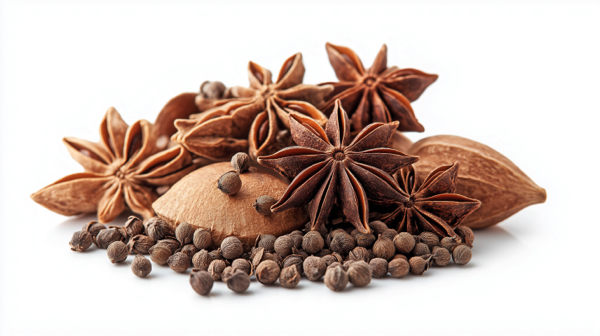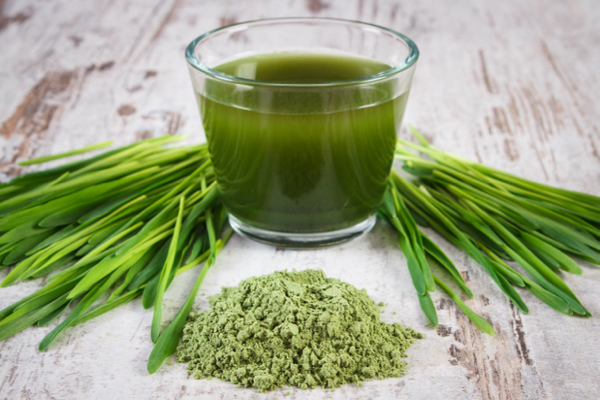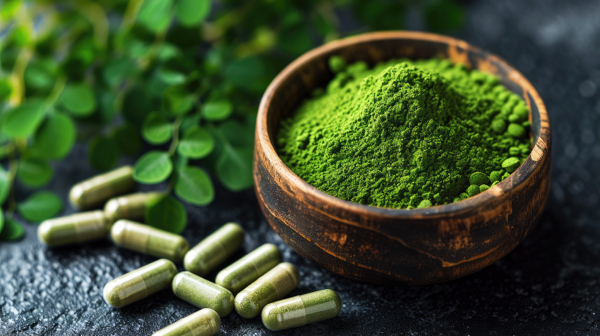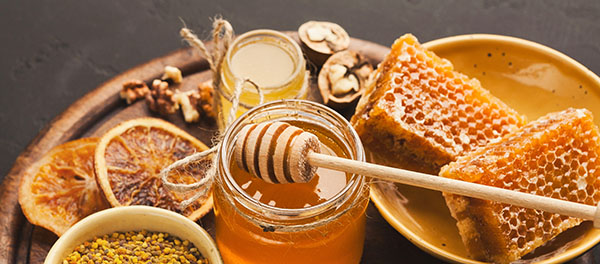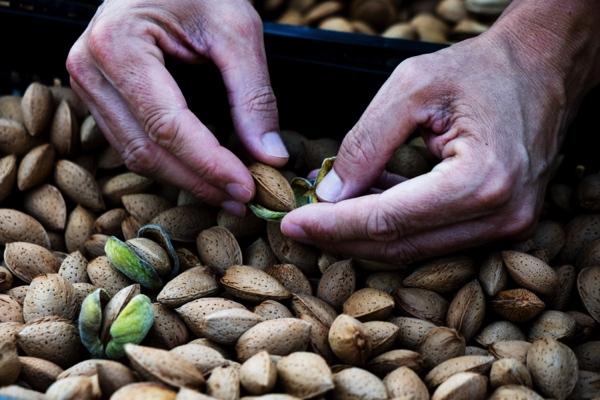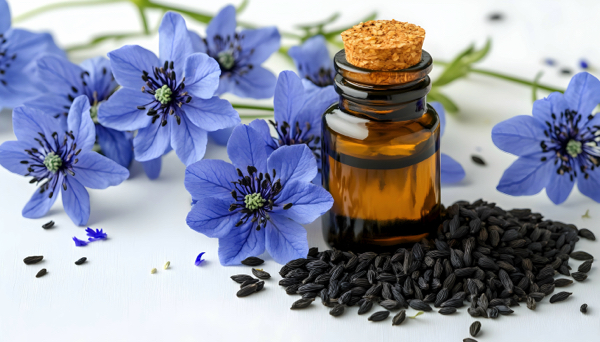Garlic’s magic: This culinary treasure can ward off ailments and safeguard wellness
10/31/2024 / By Olivia Cook

Garlic has long been celebrated as more than just a kitchen staple. It is a symbol of good fortune, health and protection – weaving together the culinary and the sacred.
Though it makes only a brief appearance in the Bible, this humble bulb has earned its place as one of the most powerful herbs in modern times. Often called “camphor of the poor,” this “stinking rose” offers a bounty of health benefits by acting as a natural antimicrobial. In essence, growing garlic at home is like having your pharmacy – a potent ally in warding off ailments and safeguarding your wellness and well-being. This small bulb deserves a spot in everyone’s life.
Health power of garlic
Garlic, along with its Allium relatives like leeks and onions, has long been known for fighting infections. But garlic stands out for its strong antimicrobial punch – thanks to some unique sulfur-based compounds. Here’s a breakdown of garlic’s most powerful health defenders.
Allicin
Allicin is what gives raw garlic its signature smell and it is also the main player when it comes to health benefits. It is a powerhouse against a wide range of harmful bacteria – even those resistant to many antibiotics. Allicin can also combat fungi, parasites and viruses. When it interacts with bacteria, it disrupts their vital processes, which eventually kills them. For instance, it has been shown to improve skin infections caused by methicillin-resistant Staphylococcus aureus (MRSA) – a notoriously tough bacteria. The catch? Allicin does not last long in the bloodstream, so its use may be better suited for inhalation or topical treatments.
Ajoene
Formed from allicin, ajoene is another sulfur-rich compound in garlic oil. It is effective against bacteria and fungi, including strains like H. pylori and Candida albicans. Though its antimicrobial action is slightly less potent than allicin, ajoene still packs a punch. However, like allicin, it breaks down quickly once inside the body.
Diallyl polysulfides
Found in garlic oil, these compounds vary in strength – depending on how many sulfur atoms they contain. The more sulfur atoms, the stronger their ability to tackle bacteria. Among these, diallyl tetrasulfide (DAS-4) is the most potent – making garlic oil effective as an antibacterial remedy, especially against drug-resistant strains.
Vinyldithiins
Although vinyldithiins, also found in garlic oil, don’t have antimicrobial properties, they contribute to garlic’s overall health benefits in other ways, such as helping with weight management.
Wellness wonders of garlic
Garlic, whether raw or in the form of oil or powder, is not just a flavorful addition to your meals – it is a natural remedy packed with therapeutic properties. A diet rich in garlic-infused functional foods can offer a range of science-backed health benefits. Here are some of the key ways garlic can project and boost your health.
Boosts the power of antibiotics against resistant infections
Fresh garlic extract (FGE) has been found to enhance the effectiveness of antibiotics. In a 2015 study in Jundishapur Journal of Microbiology, researchers tested how FGE worked alongside antibiotics to fight resistant strains like Staphylococcus aureus (MRSA), Pseudonomas aeruginosa and Candida albicans.
The study revealed that FGE alone had significant power against MRSA and C. albicans, but was less effective on P. aeruginosa. Even better, when combined with certain antibiotics, FGE improved the antibiotics’ ability to fight these stubborn infections. This suggests that garlic could be a helpful companion to conventional treatments for drug-resistant infections.
A natural fungal fighter. Garlic extracts are effective against fungi like Aspergillus, Candida and Trichophyton, which can cause skin infections, yeast infections and more. Applying garlic oil externally can even help with issues like ringworm and warts. In one study, researchers synthesized silver nanoparticles using garlic extract – enhancing its antifungal abilities even further. Garlic’s sulfur compounds – disulfides, monosulfides and trisulfides – are the secret behind its powerful action against fungal infections.
Broad-spectrum antibacterial power. Studies show that garlic extracts are as powerful as some broad-spectrum antibiotics – effectively tackling bacteria like Escherichia coli, Listeria, Salmonella and S. aureus. Garlic’s antibacterial properties come from its ability to break down bacterial cell membranes – causing the bacteria to die off without harming the host. That makes garlic a promising alternative to antibiotics ~ especially for people looking to avoid the side effects of commercial drugs.
A potent antiviral ally. Preclinical studies have shown that garlic extracts can stop viruses from multiplying, even in cases like the coronavirus. In some tests, garlic has been used to treat infections – ranging from sexually transmitted diseases to lung infections like pulmonary tuberculosis. Its high organosulfur content interacts with the angiotensin-converting enzyme (ACE2) protein and other viral proteins – showing the potential to prevent or reduce the severity of viral infections, including the Wuhan coronavirus (COVID-19).
Protects against cardiovascular disease
Heart disease remains one of the leading causes of death worldwide, but garlic has been shown to offer significant protection against various heart-related conditions, including hypertension and high cholesterol. Here’s how garlic can help keep your body healthy and strong.
Lowers blood pressure and fights hypertension. Garlic has proven to be particularly helpful for people suffering from high blood pressure (hypertension) – one of the major risk factors for heart disease. Studies have shown that garlic can help reduce both systolic and diastolic blood pressure. This effect is largely due to garlic’s organosulfur compounds, which help relax the blood vessels – improving blood flow and reducing pressure on the heart. Garlic supplements have been found to lower blood pressure levels almost as effectively as some conventional medications – with systolic pressure dropping by up to 10 mm Hg and diastolic by 8 mm Hg.
Improves cholesterol levels. Research has found that garlic, particularly aged black garlic extract (AGE) can help lower total cholesterol, triglycerides and harmful LDL (bad) cholesterol levels. By doing so, garlic reduces the buildup of fatty deposits in the arteries, which can lead to blockages and heart attacks. It also improves HDL (good) cholesterol levels, which helps protect against heart disease.
Prevents blood clots and thrombosis. By inhibiting platelet aggregation (the clumping together of platelets in the blood), garlic reduces the risk of dangerous blood clots that can lead to heart attacks or strokes.
Anti-atherosclerotic benefits. Garlic has been found to have a direct and anti-atherogenic effect – meaning it helps prevent plaque formation and slows the development of atherosclerosis. It also works by inhibiting certain enzymes, like sialidase, that play a role in the formation of harmful LDL cholesterol – a key factor in the progression of atherosclerosis.
Supports overall cardiovascular health. Beyond these benefits, garlic has been shown to enhance several cardiovascular parameters. It can improve blood circulation, reduce the thickness of the carotid artery walls (a marker of heart health) and support microcirculation – ensuring better oxygen and nutrient delivery to the heart and surrounding tissues. Studies suggest that garlic can even improve heart function by increasing Na+/K+-ATPase levels, which regulate sodium and potassium in heart tissue – preventing hypertrophy (enlarged heart muscle).
Helps prevent cancer
Research has shown that garlic extract can help inhibit the growth of cancer cells and support the body’s natural defenses in fighting off cancer – particularly in the digestive tract.
Reduces the risk of digestive cancers. Studies have found that consuming garlic can significantly reduce the risk of cancers affecting the colon, esophagus and stomach. Garlic’s bioactive compounds – such as allicin, allyl mercaptan) diallyl sulfide (DATS) – is known for its strong anti-cancer properties. These compounds help reduce tumor formation, slow down cancer cell growth and prevent the spread of cancer by targeting the blood vessels that feed tumors.
Aged garlic extract (AGE) and cancer prevention. By reducing reactive oxygen species (ROS) and preventing endothelial activation, AGE can help protect cells from the damage that can lead to cancer. This not only helps reduce the risk of tumor formation but also supports overall cardiovascular health – creating a double benefit for those incorporating garlic into their diet.
Boosts the immune system. By stimulating helper T-cells, garlic supports the body’s immune response – helping it to fight off infections and, potentially, cancer cells. This immune boost plays a vital role in preventing cancerous cells from growing and spreading.
Visit Herbs.news for more about medicinal foods like garlic.
Check out Mike Adams’ 47th Sermon that talks about garlic as God’s natural antibiotic, anti-cancer, anti-cholesterol medicine that also promotes virility.
This video is from the Health Ranger Report channel on Brighteon.com.
More related stories:
Harnessing the legendary power of garlic, the everyday superfood, with this simple recipe.
New study reveals regular garlic intake may lower mortality risk.
Garlic found to remove lead from the body better than a common chelator drug.
Sources include:
Submit a correction >>
Tagged Under:
alternative medicine, Antifungal, antiviral, food cures, food is medicine, food science, functional food, garlic, health science, heart health, herbal medicine, Herbs, natural antibiotics, natural cures, natural health, natural medicine, remedies, superbugs
This article may contain statements that reflect the opinion of the author
RECENT NEWS & ARTICLES
COPYRIGHT © 2017 ALTERNATIVE MEDICINE NEWS








